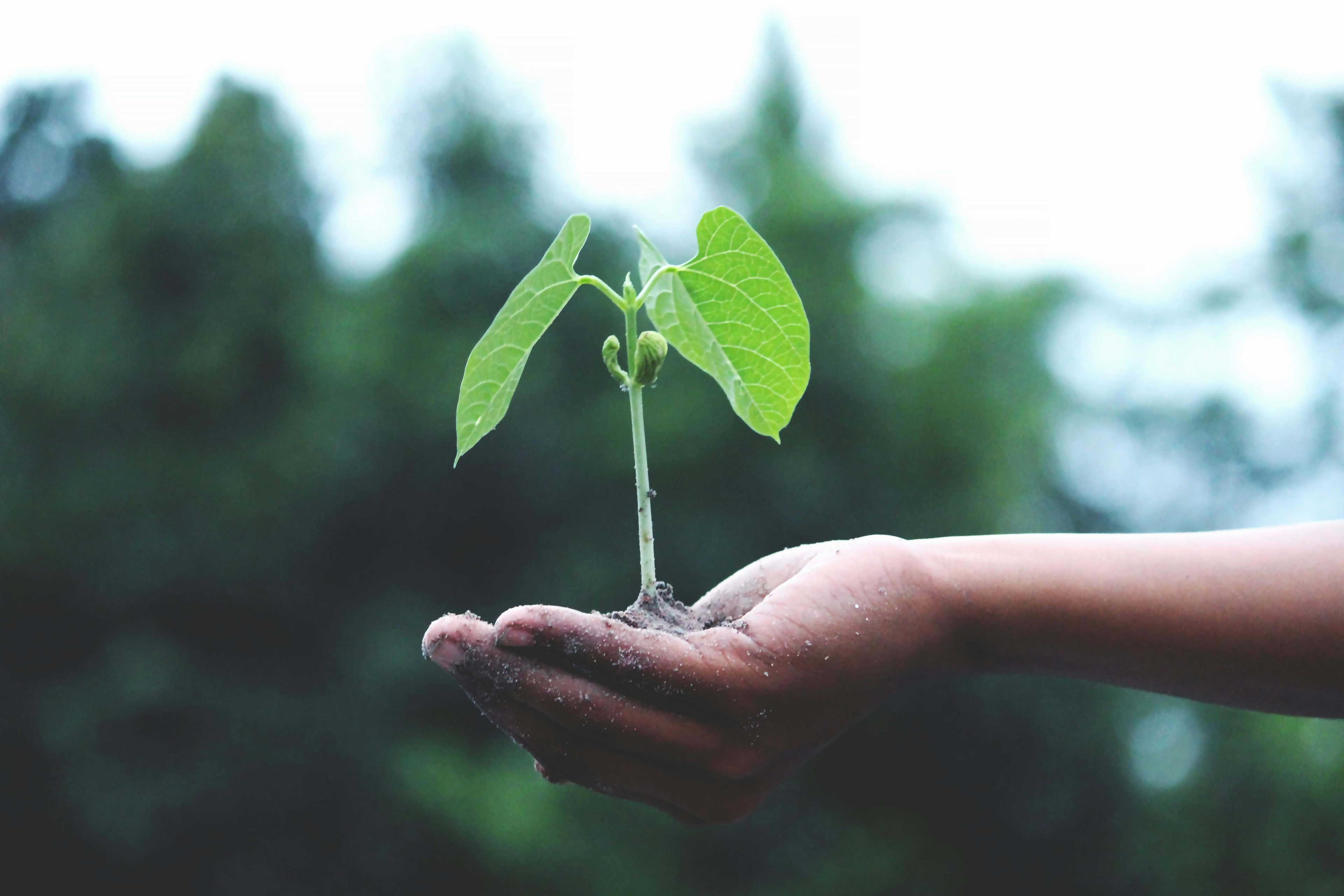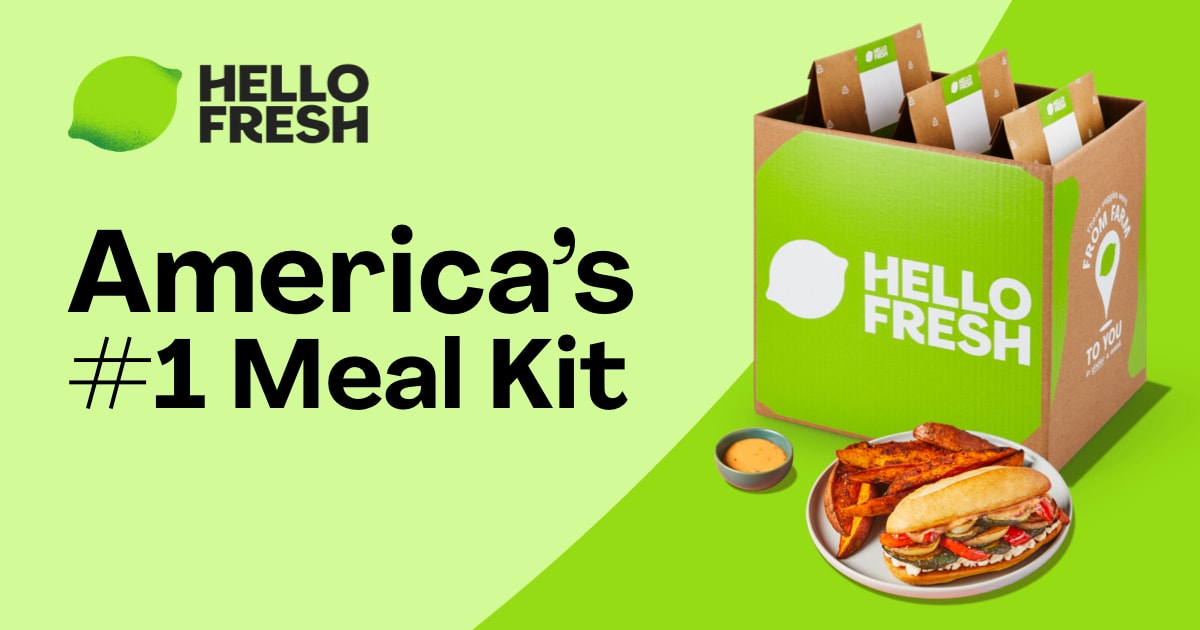8 Ways To Reduce Food Waste
8 Ways To Reduce Food Waste
Every day, in kitchens all around the world, food is being wasted. It could be half an avocado turning brown in the fridge, a slice of bread that’s gone stale, or some leftovers that were never finished. While that might not seem like much, the amount of food we waste is pretty wild when you add it all up.
Here at HelloFresh, we know all about the impact of this waste on our environment, and we're committed to making a difference. As the world's #1 Meal Kit, we're not just about delivering mouth-watering meals to your doorstep. We're also here to reduce food waste and help others do the same.
Let’s take a deeper look at food waste and discuss some of the different ways you can do your part to help reduce it.

What Is the Impact of Food Waste on Our Environment?
When we talk about climate change, the usual suspects are fossil fuels, deforestation, and industrial pollution. But did you know that food waste is also a huge contributor?Whenever food ends up in landfills, it decomposes, rots, and releases methane. According to the United States Environmental Protection Agency (EPA), these greenhouse gas emissions are 28 times more effective at trapping heat in our atmosphere than carbon dioxide.
But the environmental impact isn't just about what happens when food is wasted. It’s also about the resources that go into food production.
Think about the water used to irrigate crops, the fuel used to transport goods, and the energy to refrigerate and cook food. When we waste food, we're also wasting these precious resources.

How Much Food Is Wasted at the Consumer Level?
Food waste happens at every stage of the supply chain, but it's super high at the consumer level. Whether overbuying at the grocery store or letting food go bad at home, these habits can create food waste from start to finish.
Part of the problem is that it's way too easy to underestimate the amount of food we waste. A bit of wilted lettuce here and an overripe banana there doesn’t really sound like much food loss. But when you look at the bigger picture, the scale of food waste is remarkable.
According to the United States Department of Agriculture (USDA), American consumers are responsible for wasting between30 to 40 percent of the food supply each year. That winds up being close to 120 billion pounds (60 million tons) of wasted food!
With today’s food prices, that’s roughly $218 billion worth of food $ (about 130 billion meals) that ends up in a landfill.
8 Ways To Reduce Food Waste
- Plan Your Meals
One of the easiest ways to reduce food waste is to carefully plan your meals. Instead of going to the grocery store and purchasing foods on a whim, plan your meals ahead and only buy foods you know you’ll eat.
By knowing exactly what you need for each meal, you can buy less food, save more money, and reduce the risk of food going bad before you get a chance to use it.
2. Store Food Properly
Food storage can seriously extend the shelf life of your food and prevent spoilage. Use your fridge for perishables and your pantry for non-perishables, and don't forget to freeze food that you can’t use right away.Another thing to keep in mind is the “first-out" method: use older items first before opening new ones. This one may seem obvious, but it can be a game-changer when organizing your fridge.
3. Compost Food Scraps
Recycling your food scraps into compost is a fantastic way to reduce the amount of food waste that ends up in landfills. Composting reduces methane emissions and enriches your soil with nutrient-rich compost.Vegetable scraps, banana peels, coffee grounds, and even eggshells can all go into your compost bin and help you lower food waste.
4. Understand Food Labels
Food labels can be confusing, but understanding them can help reduce waste. For example, "best by" and "sell by" expiration dates often refer to quality, not food safety.Retailers apply these date labels as a general guide to when the food is at its highest quality. In many cases, it’s still edible food that’s safe to eat well beyond these dates.
When in doubt, trust your senses before you toss food out. AKA, does it smell sour? Toss it.
5. Donate Excess Food
If you have excess food you can't use, donate it to a local food bank or pantry. As many as 53 million people used food banks and other similar services in 2021 alone. So, not only would you be doing your part to reduce food waste, you would also be helping feed hungry people.6. Use Smaller Portions
Sometimes our eyes can be bigger than our stomachs and we overload our plates. One of two things typically happens afterward: Either you overeat and pack on some extra pounds, or you throw it away and contribute to more food waste.By opting for smaller portion sizes, you can help to avoid both. Besides, you can always go back for seconds if you’re still hungry. Just make sure that you can finish the whole serving, of course.
7. Buy Local Food
Remember, food waste isn’t just about what we put on our plates — it’s also about the resources it took to get there. Buying your food locally, like from a farmer’s market, can help reduce the waste in the supply chain.The items you buy don’t have to travel long distances, so it cuts down on resources needed to fuel and store it. Plus, buying local supports the farmers in your area and the local economy.
8. Use a Meal Kit Service
Picture this: you receive a perfectly portioned box of ingredients tailored to your chosen recipes right at your doorstep. No more guessing or overbuying at the grocery store!With meal kits, you get exactly what you need in just the right quantities. Say goodbye to those half-used ingredients languishing in the back of your fridge. Every item is carefully curated, ensuring you cook precisely and minimize potential waste.

How Does HelloFresh Contribute to Waste Reduction?
Food waste is a global issue, and it's something that we all have a role in tackling. HelloFresh reduces food waste with precisely portioned ingredients, benefiting both the planet and your wallet. In a recent study, 1,400 participants measured daily waste types over two weeks, including leftovers and unused ingredients. Participants reported a 70% decrease in scraps during food preparation when cooking HelloFresh meals compared to their usual routines.
With our pre-portioned ingredients and efficient supply chain, we're helping to reduce food waste and support our planet.